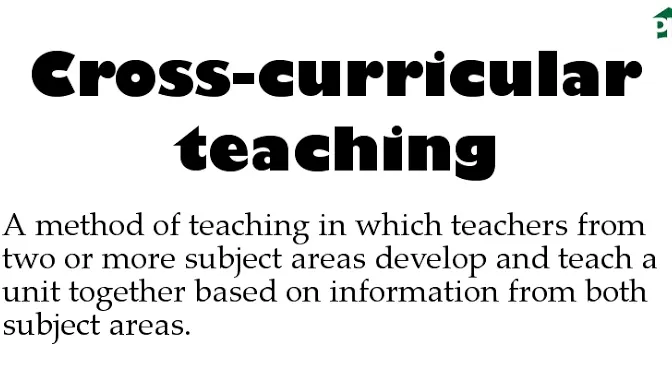Cross Curriculum
The Power of Cross-Curricular Connections in Education
Education is the foundation upon which knowledge is built, shaping individuals and preparing them for their future roles in society. In a world growing increasingly interconnected, traditional subject boundaries can sometimes hinder a student’s ability to fully comprehend the complexities of the challenges they will face. Cross-curricular connections — the practice of integrating multiple disciplines to enhance learning — serve as a bridge that connects seemingly separate fields, allowing for a deeper, more holistic understanding of the world. For example, the integration of science, mathematics, social science, computer science, and English in education is not simply a pedagogical approach; it is a step toward equipping students with the intellectual tools they need to thrive in a dynamic and multifaceted world.
🔘Redefining Learning Through Integration
Cross-curricular teaching recognizes that knowledge is not confined to neatly separated subjects. In real-world contexts, solving a single problem often requires the application of concepts from various disciplines. For instance, to address climate change, a student must draw upon scientific principles to understand the earth's systems, apply mathematical skills to analyze data, explore social sciences to evaluate policy implications, utilize computer science to model future impact scenarios, and communicate findings effectively using English language skills. By connecting these disciplines, students move beyond fragmented learning and engage in a more meaningful and engaging educational experience.
Traditional education systems often teach subjects in silos, which can unintentionally reinforce the idea that knowledge is...
Education is the foundation upon which knowledge is built, shaping individuals and preparing them for their future roles in society. In a world growing increasingly interconnected, traditional subject boundaries can sometimes hinder a student’s ability to fully comprehend the complexities of the challenges they will face. Cross-curricular connections — the practice of integrating multiple disciplines to enhance learning — serve as a bridge that connects seemingly separate fields, allowing for a deeper, more holistic understanding of the world. For example, the integration of science, mathematics, social science, computer science, and English in education is not simply a pedagogical approach; it is a step toward equipping students with the intellectual tools they need to thrive in a dynamic and multifaceted world.
🔘Redefining Learning Through Integration
Cross-curricular teaching recognizes that knowledge is not confined to neatly separated subjects. In real-world contexts, solving a single problem often requires the application of concepts from various disciplines. For instance, to address climate change, a student must draw upon scientific principles to understand the earth's systems, apply mathematical skills to analyze data, explore social sciences to evaluate policy implications, utilize computer science to model future impact scenarios, and communicate findings effectively using English language skills. By connecting these disciplines, students move beyond fragmented learning and engage in a more meaningful and engaging educational experience.
Traditional education systems often teach subjects in silos, which can unintentionally reinforce the idea that knowledge is...



